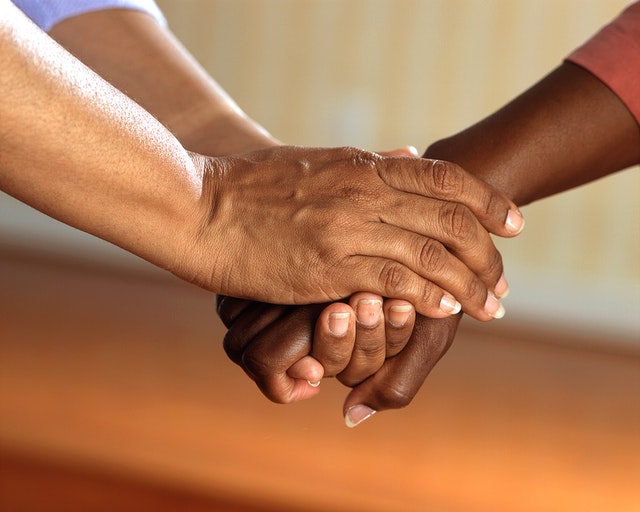Podcast: Play in new window | Download (Duration: 7:48 — 7.6MB) | Embed
Subscribe to the Healthcare Beans Podcast: Apple Podcasts | Spotify | RSS | Subscribe via..
Episode #5 of the Healthcare Beans podcast
In the United States, caregiver burden is a really big problem.
Episode takeaways:
(1) Care-giving is very stressful work and roughly 48 million people in the US are spending about 28 hours per week caring for loved ones.
(2) Patient health outcomes depend on your home environment. When you get sick, your future will depend on a caregiver.
(3) A startup called Carallel (www.carallel.com) has demonstrated success in helping caregivers do their jobs well, and with less stress. Listen to the episode to learn more.
Transcript
Hello and welcome to Healthcare Beans, I’m your host James Haven. Today I want to talk about a major problem in healthcare (and really, across society) that has, historically, received very little attention. And to be fair, there’s really no shortage of problems facing health systems in the United States; some of the big ones are, of course, how we pay for healthcare (which is way too much), the quality of healthcare (our health outcomes are not awesome, especially considering the price tag), and access to healthcare (too many people don’t have insurance or they’re worried about losing their health insurance) – but the problem I want to highlight is the invisible healthcare workforce.
As I’ve discussed in episode #3 of Healthcare Beans, there are a lot of people involved in delivering good care to you and your loved ones, and when we think about these folks, we’re usually thinking about doctors, nurses, care managers, social workers, data analysts, transporters, and several layers of administrators, and the list goes on and on. But the invisible healthcare workforce is you. It’s the unpaid caregivers at home; every patients’ family and friends who sacrifice their time and their energy to care for loved ones. And these caregivers are absolutely critical to ensuring good health outcomes for patients. And here’s why…
Health outcomes are greatly affected by our home environments. Things like preparing healthy meals, making sure the oven is turned off, making sure there’s adequate heat in the home, moving safely from the bed to the bathroom and back again (recovering patients and chronically ill people have a high risk of falling in their homes), keeping track of their medications, getting fresh air and sunlight, touching base with the patient’s care team, and simply having healthy social interactions to ward off depression and anxiety.
Altogether, this is a ton of work, and if you’ve ever dealt with sick friends or family members, you can understand the stress that comes with being a caregiver. In health policy circles, we call this “caregiver burden” and it’s no joke. Here are some stats that help paint a picture of how massive caregiver burden is in the United States – a new study from AARP & the National Alliance for Caregiving (this study came out in May of 2020) estimates that roughly 48 mil people are serving as unpaid caregivers in the United States, averaging about 24 hours per week performing caregiving activities.
That is an enormous amount of unpaid, stressful work – and Gallup research estimates the direct economic cost of caregivers being absent from their paid jobs (to care for loved ones), is in the neighborhood of 28 billion dollars, annually. Suffice it to say, we need to start looking at solutions to the huge caregiving problem in the United States.
And that’s why I’m pretty excited about this new company called Carallel – which is a digital platform designed to help caregivers reduce the stress that comes with caregiving, and actually help caregivers do a better job at managing the needs of their loved ones.
So first, I’ll talk about how Carallel came to be. This company sprang out of the Guidewell innovation challenge which was called “Caring for Caregivers” – this challenge was launched in 2019. If you haven’t heard of Guidewell, it’s a rather interesting outfit – it’s essentially a holding company that owns several health systems, and a few health insurance companies – mostly located throughout Florida. They also have a marketing wing that advances health consumerism (I’m a big fan of consumerism in healthcare, which basically puts the patient in control of their own healthcare, giving the patient the ability to make their own decisions on how to experience their healthcare).
Back to the innovation challenge – 4 finalists were selected based on their proposed concepts for providing much needed support to caregivers (and this support can be stress reduction / social inclusion / financial & legal support / lifestyle improvements / better access to food & prescriptions / and a few other quality-of-life dimensions). So, long story short, Carallel and 3 other groups were finalists in the innovation challenge. And the early data from Carallel shows that 90% of their users experienced less stress when performing caregiving duties, and about 87% reported easier decision-making. These are very promising numbers.
Now the CEO of Carallel, her name is Hillary Ebach, she says the company is getting a lot of interest from Medicare Advantage (unlike traditional Medicare, Medicare Advantage has more flexibility to cover innovative healthcare solutions); they’re also getting interest from employers, so companies that want to maintain the productivity of their employees, many of whom are caregivers. So the demand, the addressable market, for an effective digital caregiver solution is significant. I’d certainly pay for access to tools that could help me take better care of my mother, when the time comes, and I bet lots of people would do that.
According to Carallel’s website, Hillary is a seasoned executive from the media industry, and she has a background in monitoring early-stage companies, which is great. And Hillary’s leadership team is pretty impressive – you’ve got current and former C-suite executives, senior vice presidents in healthcare pharmacy operations, technology leaders (definitely a solid team). I’ve got a good feeling about Carallel and I think there are strong reasons to be confident and optimistic about the near-term future for this company.
And if & when I hear more about this innovative healthcare startup, I’ll be sure to share an update in a future podcast. Well, that’s it for today. As always, thanks for listening to Healthcare Beans. Please leave a review on Apple Podcast or any other preferred podcast platform. I’m your host James Haven. God Bless.
~ James





